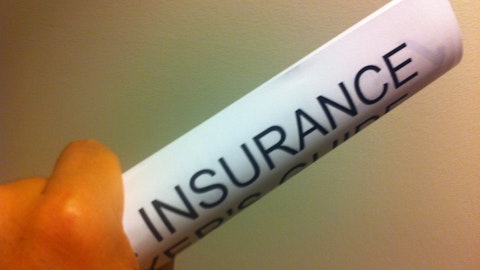Ken Tanji: Maybe I’ll just add just to remind people, we do have contingent sources of funding, in particular, our PCAPs, which is $3 billion is a guaranteed source of funding. So, that’s an important source of funding in the event of a variety of reasons, including stress.
Elyse Greenspan: Thank you.
Operator: Thank you. Next question is coming from Andrew Kligerman from Credit Suisse. Your line is now live.
Andrew Kligerman: Hey good morning. I know there’s been a number of capital questions and the IMR was impacted this quarter due to derivative losses given rising interest rates, now we’ve got rates coming off a bit in 1Q 2023. So, I’m wondering if you could give us a little sensitivity on rates and how we can think about that impact on capital, particularly with regard to these derivatives?
Ken Tanji: Yes. Again, rising rates is generally a good thing economically. But for this one item called IMR, a decline in rates would help. But it’s a pretty complicated and complex item and will also vary depending upon the activity level. So, I can’t give you a precise sensitivity as a result. But we factored into our overall capital position in order to make sure we can deal with the volatility.
Andrew Kligerman: Okay. Okay. And maybe help us on the expenses. So, you’ve got this terrific $820 million run rate savings. But as I look at results, I’m unable to kind of find those benefits falling to the bottom-line. So, maybe like a little color geographically, is all of it hitting the bottom-line? Like just a little color as to how we could think about that $820 million going forward?
Ken Tanji: Yes. It has been a company-wide objective. So, the impact is across all of our businesses and the contribution that our corporate centers make towards that. And it does hit the bottom-line. Having said that, we are investing to grow certain business lines, particularly PGIM and International and so they just want to add that dynamic in there as well.
Andrew Kligerman: Got it. And just a real quick technical question. Are you planning to deploy capital into Assurance IQ going forward, or will it — now that its generating a little profit, can it be self-funding?
Ken Tanji: Yes, we’ve maintained Assurance well-capitalized and funded its losses as they’ve been incurred. Profitability continues to improve and we’ll continue to keep it well-capitalized going forward.
Andrew Kligerman: Thanks a lot.
Operator: Thank you. Next question is coming from Michael Ward from Citi. Your line is now live.
Michael Ward: Thanks guys. Good morning. Just a high level question, I was wondering if the capital pressures, reserve charge, maybe earnings pressure in certain lines over the last 12 months or so. I’m wondering if that has changed specifically how you think about your business mix at all. And I know you’ve taken a few solid steps so far, but it seems like some incremental divestment or derisking could help reduce some of these pressures going forward. So I’m just wondering how you think about that prospect?
Charlie Lowrey: Sure, Mike. It’s Charlie. I’ll take that. So as you know, we’ve made significant progress in our transformation so far, but we would also note, we still have more work to do to become a higher growth and less market sensitive company. And as we look ahead, we’re going to focus on our financial performance. We’re going to focus on advancing our transformation, including the customer and employee experience, and we’re going to focus on continuing to thoughtfully deploy capital. All of that, with a goal of creating long-term sustainable value for all our stakeholders. And we think we’re well-positioned across our businesses to be a global leader in expanding access to investment — investing insurance and retirement security.





